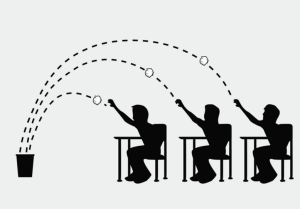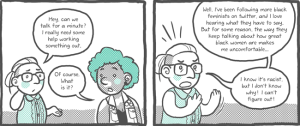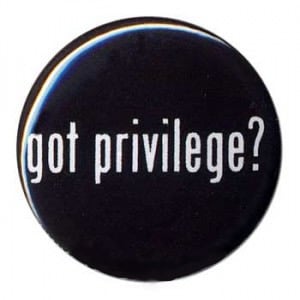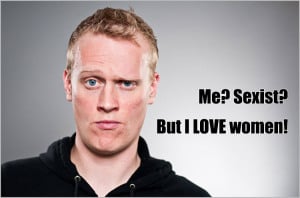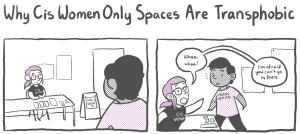
Source: The Asian Parent
The principle of self-determination coupled with a woman’s right to choose has always been at the core of reproductive rights and its relationship to feminism. And this extends to more than issues related to birth control and abortion.
All matters related to the spectrum of reproduction should reinforce a woman’s right to exercise control over her body.
Reproductive rights are not just about if and when someone decides to reproduce, but how they will give birth. Where, when, and with whom a person gives birth is equally important a right as their ability to prevent, continue, or terminate a pregnancy.
Birthing education is an issue making its way into the focus of reproductive rights issues. With over four million births occurring in the United States annually, the effects of this issue are far reaching.
Prior to looking at the matter of birth education, though, it is imperative to recognize that not all women can get pregnant and not all people who are pregnant identify as a woman. Additionally, pregnant individuals who do not identify as women – like trans men and non-binary people – face much transphobia.
This piece is not minimizing the fact that these complex issues and obstacles exist, but rather specifically concentrating on how women are impacted by this issue due to misogyny.
There are many reasons why birthing education remains an essential reproductive right. Here are some points to consider.
1. The Medicalization of the Birth Process
Medical interventions are at an all-time high. In 2012, the rate of C-sections in the United States was a staggering 32.8%.
With 1-in-3 births being treated as a medical procedure rather than a natural process, many mothers note having no authority over or voice in the birth process.
Mothers report feeling dehumanized by the process and being misled by available information. Other moms feel bullied by fear and guilt tactics.
Hospitals and insurance companies declare that their support of medical intervention in birthing is a result of following a risk aversion model. Which sounds reasonable, right?
The problem with following a risk aversion medical model is that, in essence, large insurance companies are commanding ownership of the birth process, women’s decisions, and their bodies. A male-dominated healthcare industry is enforcing decisions over mothers’ bodies and mothers’ decisions.
Until pregnant people are no longer seen as just incubators and are understood to have the strength, intelligence, and capability to make informed decisions, problems will continue.
The medicalization of the birthing process adversely affects mothers and families in several ways.
For instance, many hospitals across the nation ban vaginal births after cesarean sections (VBACs). Other hospitals are less friendly towards mothers attempting a VBAC imposing strict controlling regulations.
Despite compelling research that indicates women who have delivered by cesarean section suffered from negative psychosocial effects including feelings of failure, a reported loss of control, grief, and a sense of betrayal by caregivers, medical professionals continue to impose restrictions that limit women’s choices over their own body and natural processes.
Home births after cesareans (HBACs) are also banned in several states including South Carolina and New Jersey. Home births are often sought by women unable to seek a vaginal birth in a hospital due to a ban, so in the states where home HBACs are banned, a vaginal birth is all but impossible.
There are also specific rules about who is allowed to be present at births. For instance, some hospitals will not allow doulas present during the birthing process. Restrictions against the presence of more than one family member are common in various hospital settings across the nation.
Many doctors and medical care professionals restrict deliveries based on their own disciplinary and personal philosophies about breech presentation, estimated due dates, or beliefs about a mother’s age or weight. The expressed concerns, wishes, and plans of the mother are often marginalized or silenced.
2. A Lack of Choice
In the wise words of Diana Korte, “If I don’t know my options, I don’t have any.”
In my own personal birth experiences, having been pregnant five times and after birthing three daughters, I was struck by two things.
First, as an educated woman with a Master’s Degree living in modern times, I was taken aback by how much information I did not know about the birthing process and by how much information was withheld by traditional doctors.
Second, living in one of the wealthiest and most productive countries in the world, and residing just miles outside of one of the largest cities in the country, I was dismayed by the lack of choice.
Practitioners supporting a female empowering plan were scarce. In a day and age where most information is readily available on the Internet, I still ran into obstacles in finding detailed information about a supportive provider. The medicalization of the issue seemed to shadow all other information.
An inherent distrust of a woman’s ability to birth permeates our culture.
There is a distrust of a woman’s physical and mental competency to make decisions regarding the birth process. Women are viewed as vulnerable, unknowing, and weak, so doctors, hospital advisory boards, and insurance companies are stepping in.
When women begin to be seen as strong, capable, and smart enough to make their own informed decisions, a shift in birthing education will occur.
3. Birth Can Be Empowering
Whether a birthing woman sits in a tub with her doula by her side, opts to attempt a VBAC with the care of a midwife, or schedules a supportive C-section in a large hospital, the birthing experience can be empowering.
The key issue to empowerment is the liberty of choice. When a woman’s decisions are heard and supported, she can have a stimulating birthing experience.
But as it stands, society sends a message to women that we are incapable of giving birth. There are constant messages that the baby will be too big, that women’s bodies are disproportionate, that time will run out, or the pain will be too much to endure.
Fear is used to mitigate.
The process of overcoming pain can be strengthening. The power of overcoming fear can be transformative. But fear cannot be easily overcome until we address the ways in which our culture systemically supports fear.
4. Birthing Options Should Be Available to All
Although midwives, doulas, birthing centers, and VBAC-friendly providers are becoming more popular, their care is not readily available to all.
Many insurance companies do not cover the cost of midwives and doulas. In rural areas, finding a care provider who empowers a mother’s birth plan can be challenging. Many pregnant people drive hours to travel to a care provider that supports their plan.
Seeking the type of care a mother desires may not be affordable — or possible — for a pregnant individual.
5. Birthing Education Fights the Demonization of Women
Birthing mothers have long been viewed as less knowledgeable than medical doctors. In a medical context, birth is often viewed as something to be cured.
Midwives have been demonized as putting women at risk even though statistical information to the contrary exists.
When we allow male dominated, modern medicine to discredit a centuries old practice with an enormous wealth of knowledge about women’s bodies and health, we are allowing the oppression of not just all birthing individuals, but all women.
6. Birthing Education Is a Feminist Issue
There is much debate about whether one’s homebirth or midwife is really a feminist issue.
But let’s be clear: Any time a woman’s choices over her own body are suppressed, it is a feminist issue. Any time a woman is systemically disempowered, regardless of whether she is in a boardroom or in a birthing tub, it is a feminist issue.
Even a seemingly peaceful home birth is a feminist issue simply by virtue of a rich history steeped in advocacy, education, and support that was needed for the option to exist. A home birth is a feminist issue by virtue of it simply empowering a woman’s experience.
A hospital birth can be a feminist issue if it supports a birth plan that is conducive to the well-being and empowerment of the mother.
In order to progress on this issue, there must be a shift in the way we view the potential outcomes of birth.
As Barbara Katz Rothman remarked, “Birth is not only about making babies. Birth is about making mothers. Strong, competent, capable mothers who trust themselves and know their inner strength.”
So, What Can We Do?
1. We should be suspect of efforts to criminalize our choices.
It is our responsibility to address legislative efforts that demonize women and place restrictions on women’s bodies and choices. We must support legislators who support women’s innate ability to govern the birth process.
With a maternity system that is largely failing the women it centers upon, a call for legislative change is in order. The marginalization of millions of women who are central to the process of birth itself is oppressive.
2. We should support midwives.
Whether we elect midwives or other types of care professionals in our treatment, we should support qualified, knowledgeable women working to empower other women. These health care professionals are working against oppression on a daily basis merely by continuing to practice.
Ina May Gaskin, one of the most celebrated midwives in history, described why support for midwives is essential:
“Because an attack on midwives is an attack on women. When you destroy midwives, you also destroy a body of knowledge that is shared by women, that can’t be put together by a bunch of surgeons or a bunch of male obstetricians, because physiologically, birth doesn’t happen the same way around surgeons, medically trained doctors, as it does around sympathetic women.”
We should support all efforts by groups to disseminate empowering information among women including midwives, ICAN groups, and organizations that support an array of birthing options.
***
Birthing education is a relevant issue for pregnant and non-pregnant individuals alike. Whether birthing individuals seek a birth plan that involves a medicated birth in a hospital or an unassisted waterbirth at home is irrelevant.
What is relevant is that the element of choice needs to exist. More discussions around the freedom of choice, respect for a women-centered profession of midwifery, and women’s control over their own bodies needs to occur.
For all these many reasons, birthing education will always remain a feminist issue. We just need to bring these issues to the forefront.
[do_widget id=”text-101″]
Ann Brasco is a Contributing Writer for Everyday Feminism. She’s a writer, public speaker, advocate, and mother. She earned her B.A. in both English and criminal justice from Caldwell University. She received her Master’s Degree in social work from New York University where she was awarded the Dr. Georgia L. McMurray Student Award for her outstanding contribution to services to children and families. Ann is a weekly parenting writer on nj.com. Her children’s book, Sweetie’s Search for a Forever Home in the Garden State, will be available online and in bookstores this September. Ann spends most of her time in northern New Jersey and Charleston, South Carolina. She is the wife of one lovable husband, as well as the mom of three feisty daughters and three spirited rescue dogs. Follow Ann on Twitter or on her Facebook page.
Search our 3000+ articles!
Read our articles about:
Our online racial justice training
Used by hundreds of universities, non-profits, and businesses.
Click to learn more





